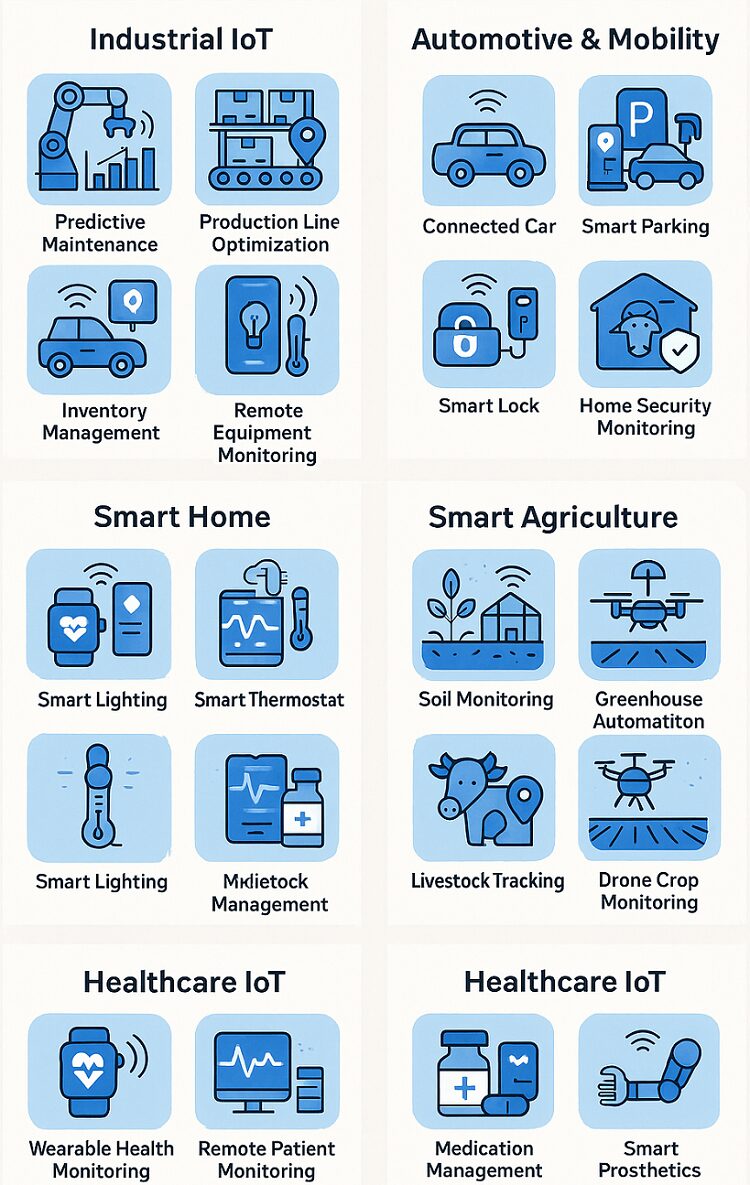Introduction
Internet-of-Things (IoT) services will soon be based on standard-based wireless technologies, and implementers of IoT services will have to be careful of SEP (standard essential patent) holders, although it might have been fine if attention was paid only to cellular networks when it comes to SEPs. Thus, securing patent rights will ensure the ability to operate IoT business while competing with other SEP holders.
Background: Standard essential patent (SEP)
In wireless communication networks such as wireless local area networks (WLANs) and cellular networks, SEPs have been critical in the eco systems including service providers, network operators, equipment vendors, and chip vendors, etc. For example, most WLANs are based on Wi-Fi, i.e., technically the IEEE 802.11 standards*1, and the cellular networks are based on the 3GPP standards*2. SEPs have a unique nature compared to other patents, since implementers cannot avoid or escape SEPs by design changes, as far as their products literally must conform to the standards and they pursue providing services based on the standards.
*1 IEEE: Institute of Electrical and Electronics Engineers
*2 3GPP: 3rd Generation Partnership Project
IoT in an era of 5G mobile and beyond
Since 5G mobile, two more use-cases, i.e., massive machine-type communication (mMTC) and ultra-reliable and low-latency communications (URLLC) have been introduced as the main scope in addition to the conventional application of enhanced mobile broadband (eMBB), which was mainly directed to high-speed communications using mobile devices such as smartphones and tablet computers. mMTC and URLLC include the so-called Internet-of-Things (IoT) as use-cases, such as factory automations and periodical monitoring or sensing, where very short-reach wireless communications are mainly used. An example of use-cases is described below:
Issue
IoT operators may not necessarily be aware of SEPs when launching their services because SEPs conventionally did not cover very much of the region of IoT services with short-reach wireless communications and low-latency and/or high-reliability requirements. Thus, the implementers of IoT services may unknowingly infringe SEP holders’ rights, and may face sudden, unexpected alerts to be issued and lawsuits to be filed.
Suggested paths forward
IoT operators may prepare and take the following measures.
First, they will be able to negotiate the license terms with SEP holders at “fair, reasonable, and non-discriminatory (FRAND)” conditions, since SEP holders generally declare their willingness of offering license terms at FRAND conditions in the process of standardization when participating in the standardization meetings. In this case, a “faithful negotiation rule” is mandated with both parties as indicated by the recent decisions by European courts. For example, Daimler substantially lost to Nokia in an SEP case, as Daimler was found to be “not faithful”, with reference to the decision C-170/13 by the Court of Justice of the European Union (CJEU). Several more case decisions also followed the CJEU’s norm in the subsequent lawsuits between different parties.
The second approach will be, by the IoT implementers themselves, proactively filing patent applications and obtaining patent rights which are essential for their IoT business, the standards, and the surrounding technical field, so that they can compete with other SEP holders. Specifically in the prosecution process of SEPs, a claim chart that maps an applicant’s claims to the technical specification of the standard significantly and efficiently facilitates obtaining patent rights. In this respect, Shiga International Patent Office has established expertise through many years of experience in the technical field such as 4G and 5G mobile-related prosecutions utilizing the claim chart.
Conclusion
When launching IoT businesses, proactively filing patent applications and obtaining patent rights will ensure a stable, advantageous position specifically at an earlier stage of the businesses rather than at a stage of the faithful negotiation process after receiving warnings from SEP holders. We will assist, support, and ensure your business with our professional service and established expertise in the course of many years of experience in the technical field such as 4G and 5G mobile-related prosecutions.
*Chinese Translation: https://shigapatent.com/wp-content/uploads/2025/05/SEP-and-IoT-Business-Using-Wireless-Technologies_CN.pdf
